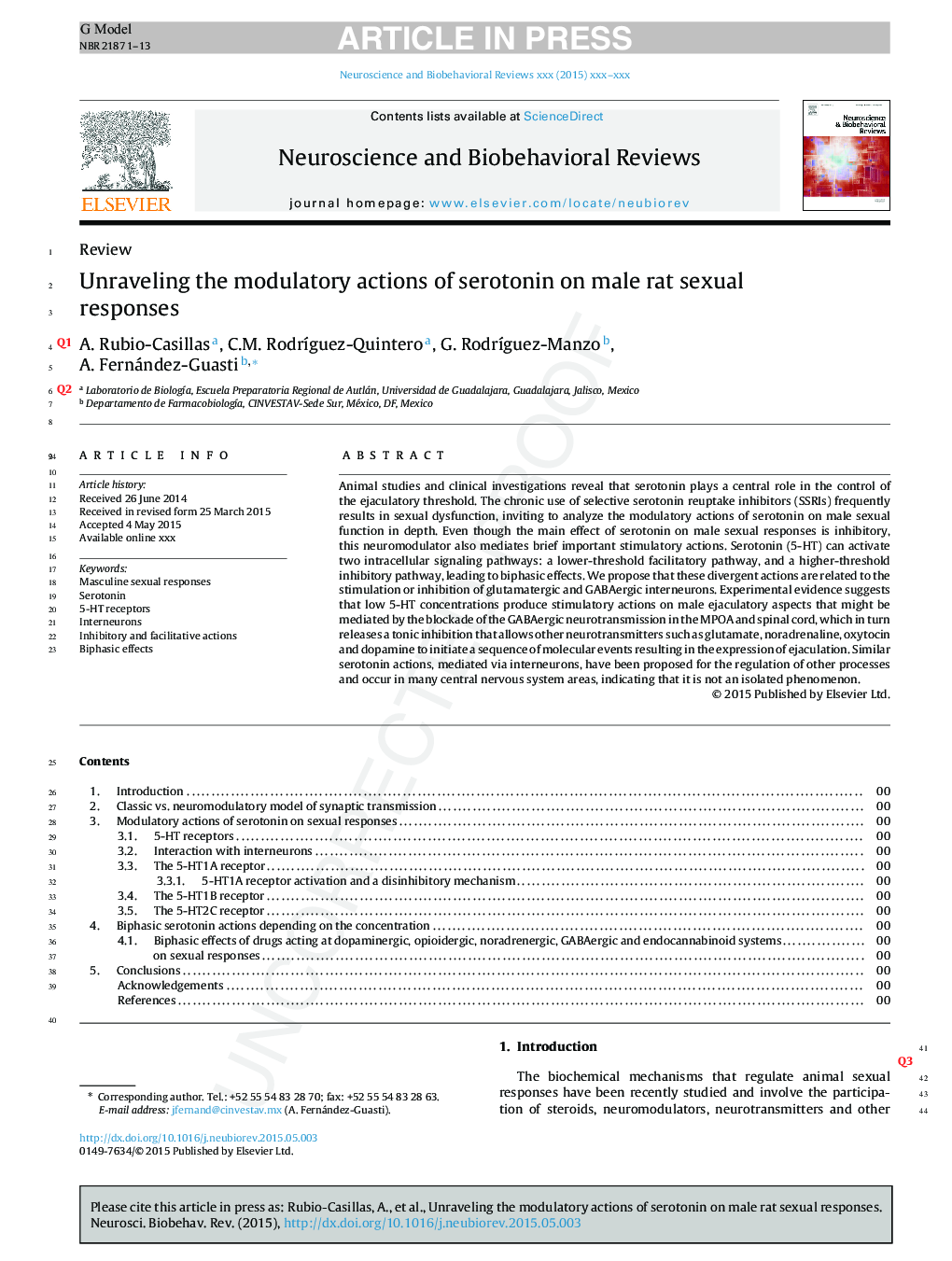| Article ID | Journal | Published Year | Pages | File Type |
|---|---|---|---|---|
| 7303431 | Neuroscience & Biobehavioral Reviews | 2015 | 13 Pages |
Abstract
Animal studies and clinical investigations reveal that serotonin plays a central role in the control of the ejaculatory threshold. The chronic use of selective serotonin reuptake inhibitors (SSRIs) frequently results in sexual dysfunction, inviting to analyze the modulatory actions of serotonin on male sexual function in depth. Even though the main effect of serotonin on male sexual responses is inhibitory, this neuromodulator also mediates brief important stimulatory actions. Serotonin (5-HT) can activate two intracellular signaling pathways: a lower-threshold facilitatory pathway, and a higher-threshold inhibitory pathway, leading to biphasic effects. We propose that these divergent actions are related to the stimulation or inhibition of glutamatergic and GABAergic interneurons. Experimental evidence suggests that low 5-HT concentrations produce stimulatory actions on male ejaculatory aspects that might be mediated by the blockade of the GABAergic neurotransmission in the MPOA and spinal cord, which in turn releases a tonic inhibition that allows other neurotransmitters such as glutamate, noradrenaline, oxytocin and dopamine to initiate a sequence of molecular events resulting in the expression of ejaculation. Similar serotonin actions, mediated via interneurons, have been proposed for the regulation of other processes and occur in many central nervous system areas, indicating that it is not an isolated phenomenon.
Related Topics
Life Sciences
Neuroscience
Behavioral Neuroscience
Authors
A. Rubio-Casillas, C.M. RodrÃguez-Quintero, G. RodrÃguez-Manzo, A. Fernández-Guasti,
